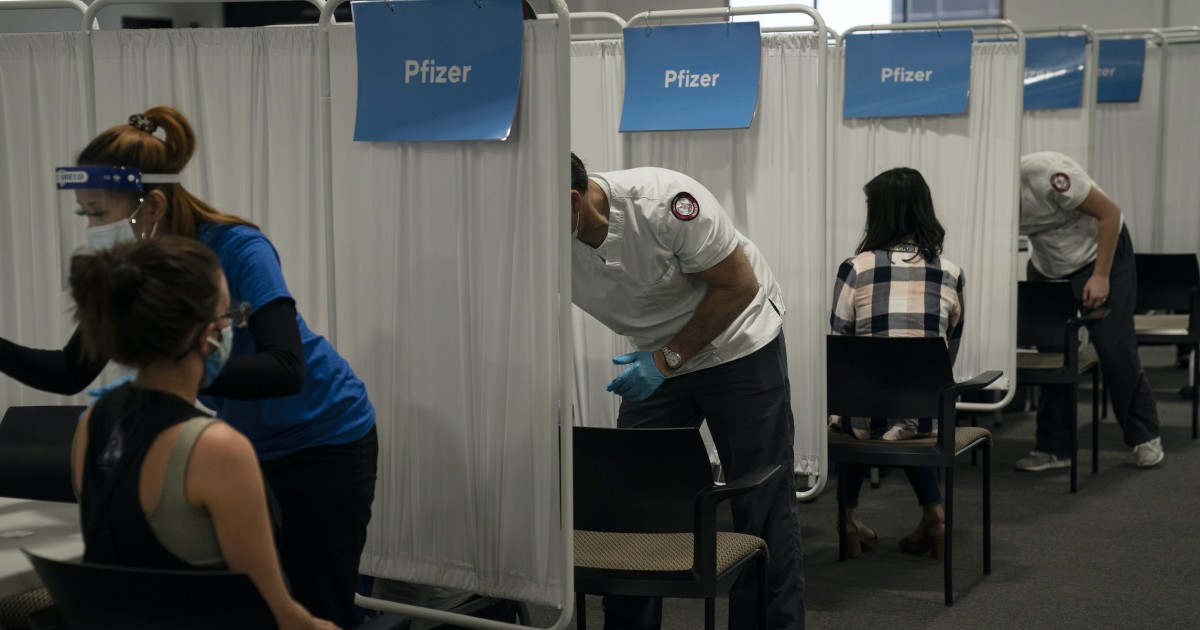
Kidney transplant recipients are still at high risk of severe disease due to the coronavirus even after being fully vaccinated, disease experts have warned.
“What we’re telling patients right now is, unfortunately, they’re going to have to take extra precautions of continuing to do all the things that we had to do early on, which is to wear masks, social distance, wash hands, because there’s very little protection [against COVID-19],” said Mike Spigler, vice president of patient services at the American Kidney Fund.
Transplant recipients are required to take immunosuppressant medications to fend off an attack from their own immune system on the transplanted organ, resulting in an overall weakened ability to fight off infection from COVID-19 and other viruses. Surgeons at Johns Hopkins University reported earlier this month that nearly all of the 658 organ transplant recipients they surveyed who received both doses of the coronavirus vaccines mounted little or no antibody response, meaning that they were still at high risk of severe infection.
FULLY VACCINATED PEOPLE DON’T NEED TO WEAR MASKS INDOORS, CDC SAYS
“Although no threshold has been established for protective immunity, antibody levels were well below that which has been observed in immunocompetent vaccinees,” the report’s authors said.
Over 60% of U.S. adults have already received at least one dose of vaccine, and roughly 48% are fully vaccinated, according to the Centers for Disease Control and Prevention. The CDC lifted nationwide masking recommendations last week for people who have been fully vaccinated, meaning they have received the single dose Johnson & Johnson vaccine or both doses of the Pfizer or Moderna vaccines. While vaccination rates are climbing and new case rates are falling, kidney disease education advocates have warned that organ recipients with compromised immune systems should keep wearing masks until the majority of the U.S. population is vaccinated.
“We need better CDC guidance on it too,” Spigler said. “CDC guidance right now … talks about immunocompromised patients and really just says they should take the same precautions — social distancing, mask-wearing.”
Immunocompromised patients may not respond as well to vaccinations as people with fully functional immune systems, so kidney disease experts saw this coming, according to National Kidney Foundation President Paul Palevsky. Special populations such as transplant recipients, cancer patients receiving chemotherapy treatments, and others who have weakened immune responses were underrepresented in clinical trials. Infectious disease experts now expect that these specific populations will require booster shots.
“The efficacy we’ve anticipated from the beginning is going to be lower in patients with kidney disease, on immunosuppression, with transplants, but still provide some benefit,” Palevsky said. “But until we have gotten to a very high level of vaccination in the general population, we think that transplant patients … and patients with kidney disease or immunosuppression should continue to socially distance.”
HOSPITALIZATIONS OF CHILDREN WITH COVID-19 LIKELY OVERCOUNTED, STANFORD RESEARCHERS REPORT
Physicians still recommend that transplant recipients get vaccinated when they can, knowing that the partial level of protection afforded them by vaccination is better than none. Scientists do not know exactly what proportion of the population has to be vaccinated or recovered from infection in order to eliminate community spread, a threshold known as herd immunity. Until the United States reaches that elusive threshold, everyone has “a societal commitment” to get the shots, Palevsky said.
CLICK HERE TO READ MORE FROM THE WASHINGTON EXAMINER
“If not for yourself, get immunized to protect the 2-year-old living next door who has leukemia or the person living across the street from you with a kidney transplant because your getting immunized will protect them,” Palevsky said. “That’s a very important message that really I don’t think can be emphasized enough.”
